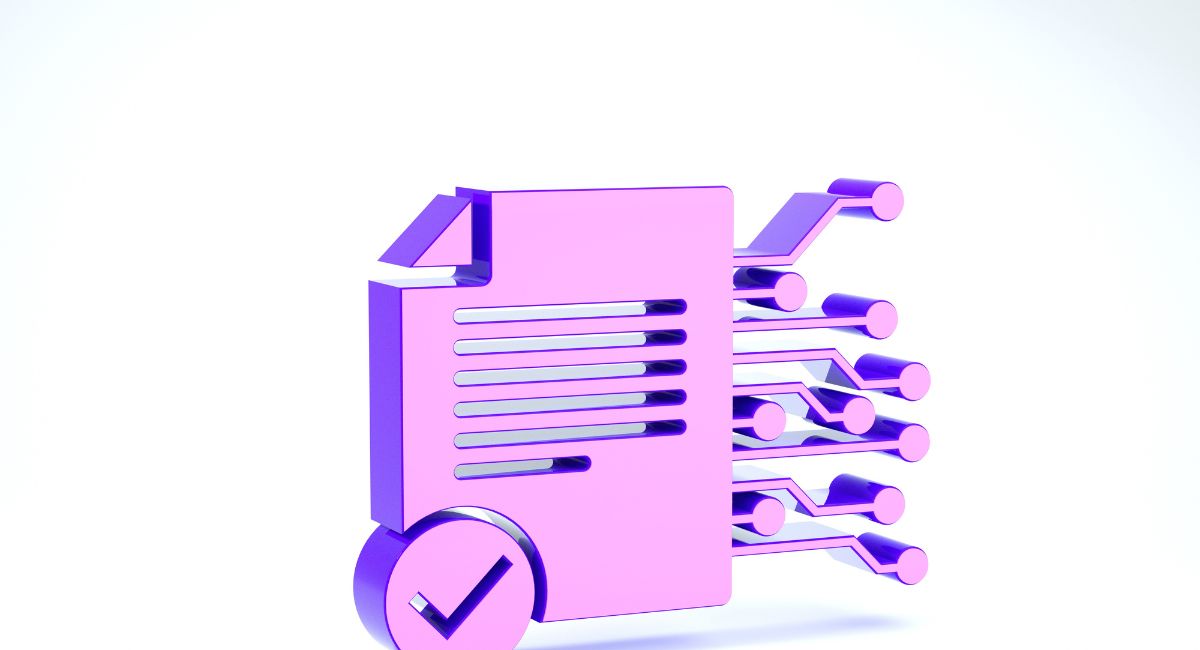Top 10 Intriguing Ways To Capitalize On The Powerful Smart Contracts Technology

Smart contracts are self-executing contracts with the terms of the agreement directly written into code. These programs run on blockchain technology, enabling automation, transparency, and trust in various contractual processes. Introduced by Nick Szabo in the 1990s, the concept gained practical application with the development of blockchain platforms, most notably Ethereum.
The fundamental principle of a smart contract is to automate and enforce the terms of an agreement without the need for intermediaries. Traditional contracts often require manual verification, legal enforcement, and can be prone to disputes. contracts, on the other hand, execute automatically when predefined conditions are met, reducing the potential for errors and disputes.
Key features of smart contracts include:
- Code Execution: contracts are written in programming languages such as Solidity for Ethereum. Once deployed on the blockchain, they execute autonomously when triggered by predefined conditions, ensuring the terms of the contract are enforced without human intervention.
- Trust and Transparency: The decentralized nature of blockchain ensures that smart contracts operate in a trustless environment. Participants can trust the outcome of the contract without relying on a central authority, as the code and execution are visible and verifiable on the blockchain.
- Decentralization: contracts operate on a decentralized network of nodes, eliminating the need for a central authority. This decentralization enhances security, reduces the risk of manipulation, and ensures that the contract’s execution is not controlled by a single entity.
- Immutable Execution: Once deployed on the blockchain, smart contracts are immutable, meaning their code and execution history cannot be altered. This feature ensures the integrity of the contract and prevents unauthorized changes.
- Efficiency and Cost Savings: Automation through smart contracts streamlines processes, reducing the need for intermediaries and minimizing the time and costs associated with manual contract execution. This efficiency is particularly evident in areas such as financial transactions, supply chain management, and legal processes.
Also, read- The Impact Of Blockchain Technology In The Legal Industry, Including Smart Contracts And Digital Identities
Smart contracts find applications across various industries:

Importance of smart contracts technology

Contract technology holds immense importance due to its transformative impact on various industries, offering numerous benefits that enhance efficiency, transparency, and trust in contractual processes. Here are some key aspects highlighting the importance of smart contracts:
-
- Automation and Efficiency: contracts automate the execution of predefined terms in a contract when specific conditions are met. This automation eliminates the need for intermediaries, reducing manual intervention, human errors, and the time required for contract execution. This efficiency is particularly valuable in streamlining complex and time-consuming processes.
- Trust and Transparency: contracts operate on blockchain technology, providing a decentralized and transparent environment. Participants in a smart contract can trust the code’s execution, as it is visible and verifiable on the blockchain. This transparency reduces the potential for disputes and builds trust among parties involved in the contract.
- Decentralization: The decentralized nature of smart contracts eliminates the reliance on a central authority or intermediary. This decentralization enhances security by reducing the risk of manipulation or fraud. Participants can engage in contracts without needing to trust a single entity, fostering a more trustless and resilient system.
- Cost Savings: By automating processes and removing intermediaries, smart contracts contribute to cost savings. Traditional contracts often involve fees for legal services, escrow services, and other intermediaries. Smart contracts streamline these processes, reducing associated costs and making transactions more cost-effective.
- Immutable Execution: Once deployed on the blockchain, smart contracts become immutable, meaning their code and execution history cannot be altered. This immutability ensures that the terms of the contract are executed as intended, providing a tamper-proof and reliable system.
- Global Accessibility: Smart contracts operate on blockchain networks that transcend geographical boundaries. This global accessibility is particularly beneficial for international transactions, enabling participants from different parts of the world to engage in contracts without the need for complex cross-border processes.
- Decentralized Finance (DeFi): contracts play a crucial role in the development of decentralized finance applications. DeFi platforms leverage smart contracts to provide services such as lending, borrowing, trading, and yield farming in a decentralized and permissionless manner.
- Supply Chain Management: In supply chain processes, contracts enhance transparency by automating and recording various stages of the supply chain on the blockchain. This transparency helps in verifying the authenticity of products, preventing fraud, and ensuring the efficiency of the supply chain.
- Real Estate Transactions: contracts can streamline real estate transactions by automating tasks like title transfers, escrow, and payment processing. This simplifies the real estate process, reduces the need for intermediaries, and expedites property transactions.
- Innovative Applications: The flexibility of contracts allows for the creation of innovative applications across diverse sectors. From insurance claims processing to voting systems, smart contracts have the potential to revolutionize traditional processes and introduce new possibilities.
the cryptocurrency market: Ethereum. Ethereum, often referred to as Ether or ETH, is a decentralized platform that allows developers to build and deploy smart contracts and decentralized applications (DApps) using blockchain technology.
— Daniel Sampaio (@DanielSampaio14) January 28, 2024
This article seeks to highlight the…
Top 10 ways to capitalize on the powerful smart contracts technology

Capitalizing on the powerful capabilities of contract technology requires a strategic approach. Here are ten ways businesses and individuals can leverage smart contracts to their advantage:
- Decentralized Finance (DeFi) Platforms:
- Explore opportunities in decentralized finance by participating in lending, borrowing, or liquidity provision on DeFi platforms. contracts enable these financial services without the need for traditional intermediaries.
- Automated Payments and Escrow Services:
- Implement smart contracts for automated payment processes. This is especially beneficial for recurring payments, subscription services, and contractual agreements where predetermined conditions trigger automatic transactions.
- Supply Chain Management:
- Utilize contracts to enhance transparency and efficiency in supply chain processes. Implement automated contracts to streamline payment settlements, track the origin and movement of goods, and enforce quality control standards.
- Tokenization of Assets:
- Explore the tokenization of assets such as real estate, art, or commodities. Smart contracts facilitate the creation and management of digital tokens representing ownership, enabling fractional ownership and increased liquidity.
- Insurance Claims Processing:
- Implement smart contracts in the insurance industry to automate claims processing. By setting predefined conditions for claim payouts, smart contracts can expedite the settlement process, reducing administrative overhead and improving customer experience.
- Smart Legal Contracts:
- Integrate smart contracts into legal processes to automate contract execution, enforce terms and conditions, and manage compliance. This can streamline various legal agreements, reducing the need for manual intervention and associated costs.
- Decentralized Autonomous Organizations (DAOs):
- Explore the concept of DAOs, where smart contracts govern decision-making processes in a decentralized organization. This can be applied to community governance, investment funds, or collaborative projects.
- Real Estate Transactions:
- Streamline real estate transactions by using contracts to automate tasks such as property transfers, escrow services, and payment processing. This can reduce the complexity and time involved in real estate deals.
- Token Sales and Crowdfunding:
- Launch token sales or crowdfunding campaigns using smart contracts. These contracts can automate the issuance and distribution of tokens, as well as the execution of predefined rules for fundraising events.
- Cross-Border Transactions:
- Capitalize on the efficiency of smart contracts for cross-border transactions. By leveraging blockchain’s borderless nature, smart contracts can facilitate faster and more cost-effective international transactions compared to traditional banking systems.
Conclusion
In conclusion, the transformative power of contract technology opens up a myriad of opportunities for businesses and individuals across various sectors. By capitalizing on the capabilities of smart contracts, entities can revolutionize traditional processes, enhance efficiency, and foster a more transparent and decentralized approach to transactions.
contracts offer the potential to reshape the financial landscape through decentralized finance (DeFi) platforms, providing new avenues for lending, borrowing, and liquidity provision without the need for traditional intermediaries. The automation of payments, escrow services, and supply chain processes can streamline operations, reduce costs, and improve overall efficiency.
Tokenization of assets, facilitated by smart contracts, introduces novel possibilities for fractional ownership and increased liquidity in traditionally illiquid markets such as real estate and art. The insurance industry can benefit from the automation of claims processing, resulting in faster settlements and improved customer satisfaction.
The integration of smart contracts into legal processes and the creation of decentralized autonomous organizations (DAOs) showcase the versatility of this technology in governance, compliance, and collaborative decision-making. Real estate transactions become more streamlined and accessible, and cross-border transactions can be executed more efficiently.
However, while the potential benefits are substantial, it’s essential to approach the implementation of smart contracts with a clear understanding of the specific use case, potential challenges, and legal considerations. Staying abreast of evolving regulatory frameworks and prioritizing security best practices are paramount to ensuring the successful and secure deployment of smart contract solutions.
As smart contracts continue to evolve and gain wider acceptance, their impact on industries and everyday transactions is poised to grow, bringing about a new era of efficiency, transparency, and trust in the digital economy. Entities that strategically leverage smart contracts stand to gain a competitive edge and position themselves at the forefront of the ongoing technological revolution.




























































